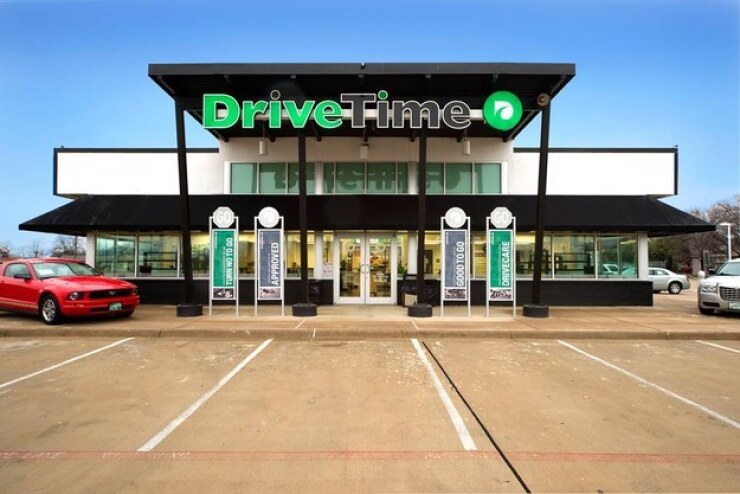Despite marginally weaker credit metrics, DriveTime is offering fewer investor protections on its latest offering of bonds backed by deep subprime auto loans.
That’s because losses on recent deals, and in the sponsor’s larger managed portfolio, are actually declining.
S&P Global Ratings describes the collateral for the $486 million DT Auto Owner Trust 2018-2 as “marginally weaker” than that of the Tempe, Ariz., lender’s previous deal, in March. There’s a higher proportion of longer-term loans (those with terms of 67 and 72 months), which account for 55.7% of the pool, up from 48.5% in the
Also, the distribution of borrowers from its three highest internal credit-scoring tiers fell to 76.91% from 78.7%, and the weighted average FICO of 530 (excluding no-FICO scores) is down to one of its lowest marks in the recent history of the platform. (The lowest ever, for the March deal, was 539.)

Nevertheless, DriveTime was able to secure the same triple-A ratings from both S&P and DBRS on the senior tranches of note to be issued, despite offering just 65.5% vs. 66.5% in the prior transaction.
Improved performance in outstanding securitizations and reductions in portfolio delinquencies and charge-offs is limiting 2018 expected loss levels.
The deal is backed by a pool of 34,747 loans with a balance of $600 million (or $17,269 per account)
Expected losses assigned to the new deal by S&P remain unchanged at a range of 29-30%. (DBRS increased only slightly to 31.25% from 30.75%).
According to presale reports, the stable loss projections are aided by DriveTime’s focus since 2017 on originating more loans with higher-income, higher-FICO borrowers for new-vintage, lower mileage cars, and tightening standards on lower-tiered credit customers (S&P reports DriveTime has originated fewer loans through its three-lowest internal scoring tiers since December 2016).
Fewer loans in the 2018-2 pool were issued to borrowers lacking FICO scores (13.87% vs. 17.5% in DTAOT 2018-1), according to S&P.
DriveTime is also experiencing improved performance on outstanding asset-backed deals, according to S&P, which in May revised loss expectations downward (by 25 basis points) on two of DriveTime’s 2015 transactions.
The push for higher-credit obligors since late 2016 is part of a “broader strategy to diversify financing options” for dealers, according to S&P, which also noted reduced levels of delinquencies and net charge-offs declining as a percentage of monthly principal in the company's $4.9 billion managed portfolio.
The latest transaction is the 26th for DriveTime since 2009, and the 63rd since its founding in 1996 (then known as Ugly Duckling).
The transaction is expected to close June 14.





